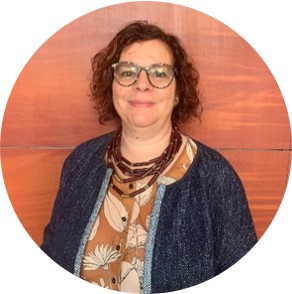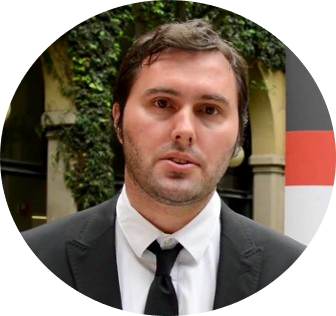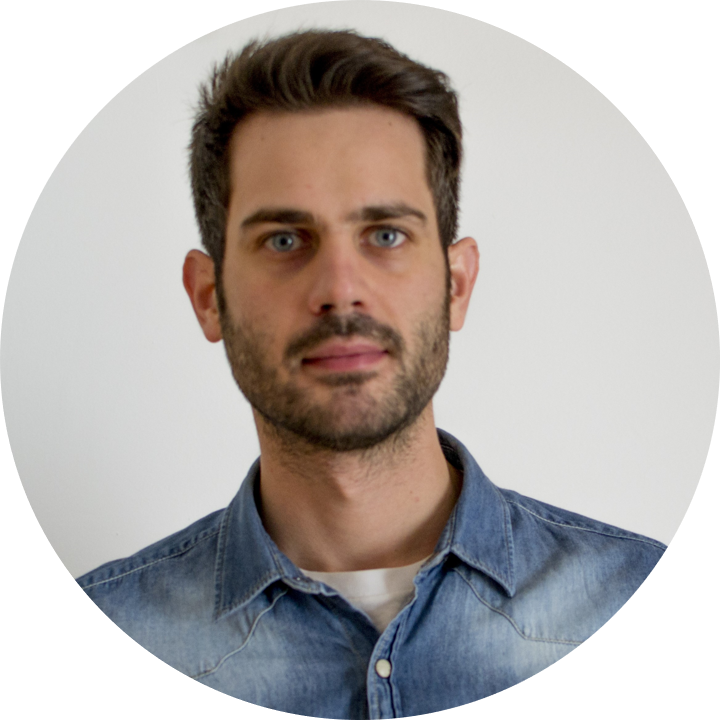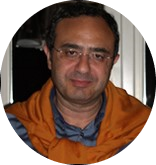
Sustainability Webinar | Life-Cycle Assessment of Energy Storage in Building Applications
Part of the Sustainability Webinar series
19 January 2021, 00:00
Building Applications, Energy Storage, LifeCycle Assessment
Webinar Information
3rd Sustainability Webinar
Life-Cycle Assessment of Energy Storage in Building Applications
Nowadays, it is fundamental to adopt strategies that allow the building sector to both reduce the energy supplied by fossil fuels and the energy demand. The use of energy storage, either thermal or electrical, has been proved as an effective way to improve the integration of renewable energy sources and the efficiency of energy systems integrated into buildings. Although the thermodynamic performance and the economic aspects are important to demonstrate the benefit of different storage technologies, their environmental impact is often overlooked.
The concept of sustainability has become part of our daily life and the transition towards a circular economy requires the evaluation of the environmental impact of energy systems to be a fundamental aspect. This webinar aims at promoting the importance of the evaluation of the environmental impact of energy storage systems applied to buildings. In this context, life-cycle assessment (LCA) has been recognized as a suitable approach to quantitatively evaluate the environmental impacts of a certain product or system for its entire life-cycle. During the webinar different experiences on the use of LCA methods applied to energy systems will be shared to promote the discussion on the state-of-the-art, challenges, and outlooks concerning the environmental impact of energy storage technologies for building applications. You are all invited to participate!
Date: 19 January 2021
Time: 11.00am CET
Webinar ID: 868 2763 6958
Webinar secretariat: sustainability.webinar@mdpi.com
Chairs: Prof. Dr. Luisa F. Cabeza, Dr. Gabriel Zsembinszki, Dr. Emiliano Borri
|
Professor Luiza F. Cabeza |
Prof. Dr. Luisa F. Cabeza is a full professor since 2006 at UdL. She graduated in Chemical engineering in 1993 and Industrial engineering in 1992 at the Universitat Ramon Llull (Barcelona, Spain). She got a MBA in 1995 and Ph.D. in 1996 from the same university. After a post-doctorate appointment at the USDA-ARS-ERRC lab in Philadelphia, USA, she joined UdL in 1999. She has devoted the last 21 years in developing new materials and systems for thermal energy storage in different applications. She was a member of the Executive Committee of the Storage Program of the International Energy Agency (ECES IA – IEA) and she has contributed to the SREEN, AR5 reports of the IPCC, and today she is CLA of the Buildings chapter in the AR6 preparation of the IPCC. She is the Spanish expert in the Challenge 3 – Energy of the H2020 programme. |
|
Dr. Gabriel Zsembinszki |
Dr. Gabriel Zsembinszki holds a PhD degree in Physics from the Autonomous University of Barcelona, Spain. Since 2010 he has been part-time lecturer and researcher at the GREiA research group at the University of Lleida (on topics related to thermal energy storage based on the use of phase change materials, energy optimisation in industrial processes, energy systems, and refrigeration systems). He participated in different European projects (FP7 and H2020), and he was involved in the coordination of the EU H2020 funded project INPATH-TES (H2020-CSA No 657466) and in the technical coordination of the EU H2020 funded project HYBUILD (H2020-RIA No 768824).
|
|
Dr. Emiliano Borri |
Dr. Emiliano Borri graduated from Università Politecnica delle Marche with a bachelor of Mechanical Engineering in February 2013. In 2015, he earned the master degree in Mechanical Engineering with honours with the final project developed at the Istanbul Teknik Universitesi (Turkey). In February 2019, he earned the Ph.D. in Industrial Engineering at Università Politecnica delle Marche. The research activity was focused on the study of liquid air energy storage and the thermal characterization of low-temperature phase change materials for high-grade cold storage applications. During his Ph.D. he spent 14 months at Nanyang Technological University (Singapore) and 3 months at the University of Birmingham (UK). Since April 2019 he is a post-doctoral researcher at the GREiA research group at the Universitat de Lleida. |
|
Prof. Dr. Maurizio Cellura |
Prof. Dr. Maurizio Cellura is a Full professor of building physics and energy systems since 2011 at the University of Palermo, his scientific activity is mainly oriented towards energy and environmental topics, with focus on energy efficiency in buildings, technologies powered by renewable energy and decarbonization strategies of systems and processes. He was member of the National Ecolabel Ecoaudit Committee from 2000 to 2004, coordinator of the national scientific committee EMAS schools (2004-2004), reviewer for the EU Commission under several funding programs, member of the workgroup for the definition of ECOLABEL criteria on buildings, chair of the workgroup “Energy and sustainable Technologies” of the Italian LCA Network and has been coordinator of several national and EU projects in the field of environmental sustainability of processes, life cycle of food products, eco-oriented design making, development of innovative tools and methodologies for the sustainability of products and services. He has also participated to many International Energy Agency work groups: SHC task 27 (Performance of Solar Facade Components), 38 (Solar air-conditioning and refrigeration), 48 (Quality Assurance & Support Measures for Solar Cooling Systems) and 40 (Towards Solar net zero energy buildings), EBC Annex 57 (Evaluation of embodied energy and CO2eq for building construction) and 62 (Ventilative cooling), Annex 72 (Assessing Life Cycle Related Environmental Impacts Caused by Buildings), Annex 83 (Positive Energy Districts). Since 2013 he is member of the Consultation Board of MIUR (Italian Ministry of Education and Research) for Horizon 2020, Challenge “Secure, clean, and efficient energy”, since 2014 he is representative for the University of Palermo of the “Sustainable Solutions Development Network”, agency of the United Nations Environment Program (UNEP), since 2012 he was vice-president of the Italian LCA Network Association, of which he became president in October 2015. Since June 2014, he is coordinator of the Ph.D. course in “Energy and information Technologies” at the University of Palermo. From December 2015 to 2018 he was member of the Scientific Council of the University of Palermo. From December 2018 he is national representative of the Implementation Working Group 5 of the SETPLAN “Energy Efficiency in Buildings”. Since 2020 he is Member representing Italy in the Euro-Mediterranean Bureau of the Union for Mediterranean Regional (UFM) Platform on Research & Innovation. He is also author of about 350 papers in the fields of LCA, multicriteria decision making, industrial ecology, energy efficiency in buildings and building simulation.
|
|
Dr. Dieter Boer |
Dr. Dieter Boer (invited speaker): He is associate professor in the Mechanical Engineering Department of the University Rovira i Virgili (Tarragona, Spain). He is a Chemical Engineer from the Universität Karlsruhe (Germany) and has got his PhD in Process Engineering from the Institut National Polytechnique de Toulouse (INPT) (France). He works in the SUSCAPE (SUstainable Computer Aides Process Engineering) research group on thermal systems (energy conversion, renewables, buildings) and their environmental benefits and impacts. He focusses actually on life cycle assessment and multi-objective optimization. |
Program
|
Speakers/ Presentations |
Time CET |
|
Prof. Dr. Luisa F. Cabeza; Dr. Emiliano Borri; Dr. Gabriel Zsembinski “State of the art of the environmental impact of energy storage for buildings”
|
11.00am |
|
Prof. Dr. Maurizio Cellura "Reuse of electric vehicle batteries in a residential stationary application: an integrated load match analysis and life cycle assessment approach" |
11.30am |
|
Dr. Dieter Boer “Approaches for the life cycle assessment of buildings and thermal energy storage” |
11.55am |
| Q & A | 12.20am |
Webinar content
In order to stay updated on the next webinars on Sustainability, be sure to sign up for our newsletter by clicking on “Subscribe” at the top of the page.
Relevant Special Issues
Life-Cycle Assessment of Energy Storage in Building Applications
Guest Editors: Dr. Luisa F. Cabeza, Dr. Emiliano Borri, Dr. Gabriel Zsembinszki
Deadline for manuscript submissions: 15 July 2021
***
The Application of Renewable Energy in Sustainable Architecture
Guest Editors: Prof. Dr. Francesco Nocera & Prof. Eng. Luigi Marletta
Deadline for manuscript submissions: 20 December 2020
Technology and Management for Sustainable Buildings and Infrastructures
Guest Editor: Prof. Dr. Sunkuk Kim
Deadline for manuscript submissions: 31 December 2020
Sustainable Zero Energy Buildings
Guest Editors: Dr. Patxi Hernandez & Dr. Xabat Oregi
Deadline for manuscript submissions: 30 January 2021
Energy Storage Materials in Sustainability
Guest Editor: Dr. Tabbi Wilberforce
Deadline for manuscript submissions: 15 March 2021
Energy Storage Technologies in Future Energy Systems
Guest Editors: Dr. Morteza Nazari-Heris, Prof. Dr. Gevork B. Gharehpetian, Prof. Dr. Behnam Mohammadi-Ivatloo & Dr. Somayeh Asadi
Deadline for manuscript submissions: 30 April 2021
Sustainability Rating Tools in the Built Environment
Guest Editors: Dr. Georgia Warren-Myers & Dr. Christopher Jensen
Deadline for manuscript submissions: 31 May 2021
Energy Efficiency and Comfort Indoor in Smart Buildings
Guest Editors: Dr. Concettina Marino & Dr. Antonino Nucara
Deadline for manuscript submissions: 31 May 2021
Modeling Building Energy and Environmental Systems in the Built Environment
Guest Editor: Dr. Mohammad Heidarinejad
Deadline for manuscript submissions: 15 July 2021
Thermal Behavior and Energy Efficiency of Buildings
Guest Editors: Dr. Nelson Soares & Dr. Luisa Dias Pereira
Deadline for manuscript submissions: 31 July 2021
Life Cycle Assessment in Materials Engineering and Sustainability
Guest Editor: Dr. Enda Crossin
Deadline for manuscript submissions: 30 November 2021











